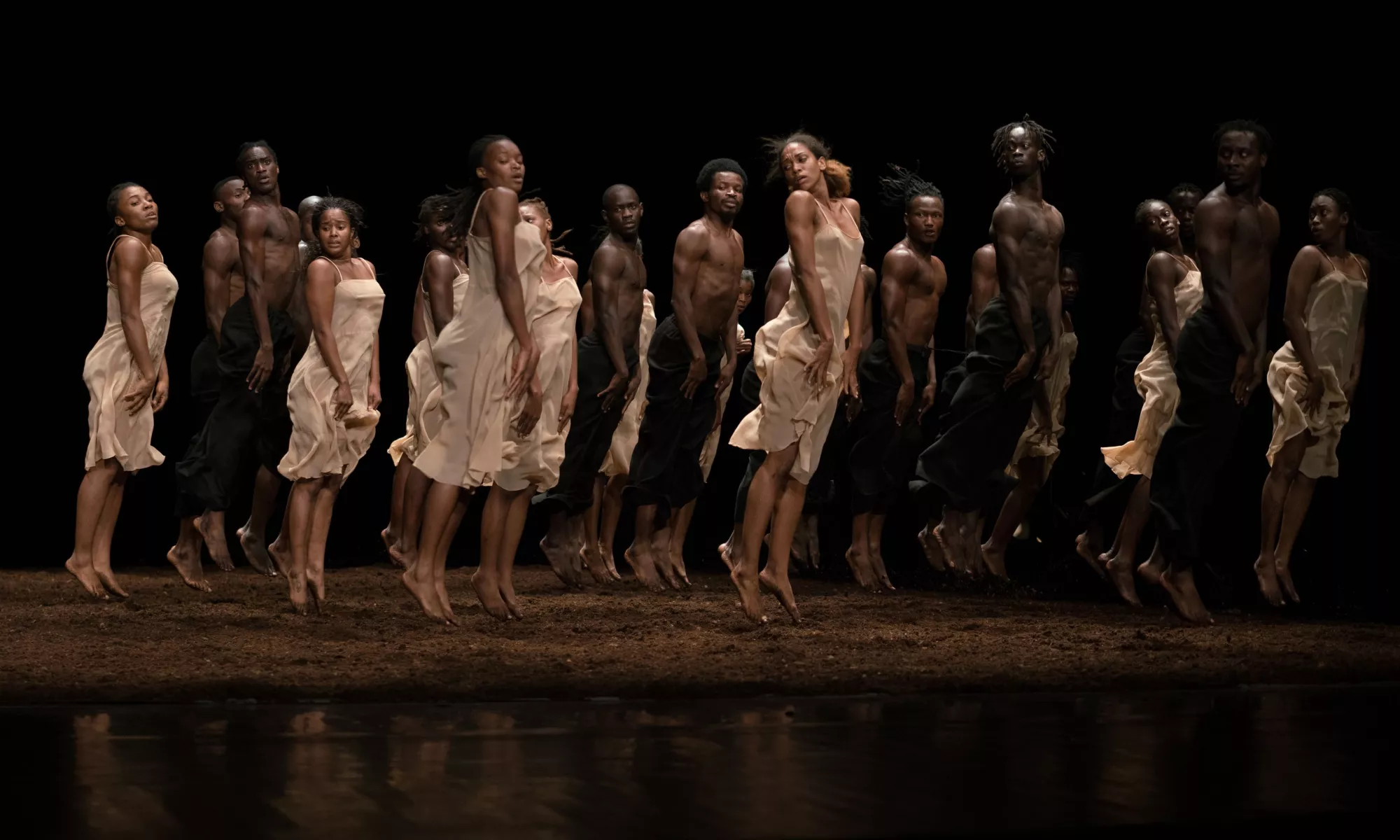
Germaine Acogny is a Senegalese French dancer, teacher, and choreographer, known as the ‘mother of contemporary African dance’ and a respected emissary of African Dance and Culture. She studied at the École Simon Siegel in Paris and established her first dance studio in Dakar in 1968. There, she developed her own technique for Modern African dance, combining the influence of dances she had inherited from her grandmother, a Yoruba priestess, with her knowledge of traditional African and occidental dance.
Between 1977 and 1982, Acogny was the artistic director of Mudra Afrique (Dakar), before moving to Toulouse in 1985, where she and her husband, Helmut Vogt, founded the ‘Studio-École-Ballet-Théâtre du 3è Monde’. In 1995, she returned to Senegal and established an international education centre for traditional and contemporary African dances, l’École des Sables.
In 1998, she started her own dance company, Jant-Bi, whose productions include Les écailles de la mémoire – Scales of memory (2008), a collaboration with Urban Bush Women, and notably, Fagaala, based on the genocide in Rwanda and winner of a Bessie Award (2007). Acogny’s other prominent works and credits include Sahel (1987), YE’OU (1988 – winner of the London Contemporary Dance and Performance Award 1991), Tchouraï (2001), Bintou Were - a Sahel Opera (2007), Songook Yaakaar (2010), Mon élue noire – Sacre no.2, choreography Olivier Dubois, (2014, based on the original music of The Rite of Spring, winner of a Bessie Award 2018) and A un endroit du début (2015).
Malou Airaudo was born in Marseille in 1948 and began dancing at the age of eight, at the Opéra de Marseille. At seventeen, she joined the Ballet Russe de Monte-Carlo, where she became a soloist working with Léonide Massine, before joining Françoise Adret and her Ballet-Théâtre-Contemporain in 1968. Airaudo moved to New York in the early 1970s to work with Paul Sanasardo and Manuel Alum, the latter choreographing the solo "Woman of a Mystic Body" for Airaudo. It was there that she met Pina Bausch for the first time.
In 1973, she was invited Wuppertal, Germany by Bausch, newly appointed head of the Wuppertal Ballet, which she soon renamed the Tanztheater Wuppertal. Airaudo became one of the key figures of the ensemble, creating major roles in various productions, such as Iphigenie auf Tauris, Orpheus und Eurydike, Café Müller, and The Rite of Spring, among others.
Airaudo was also a founding member of the Parisian dance company, La Main, along with Jacques Patarozzi, Dominique Mercy, Helena Pikon and Dana Sapiro, and worked with choreographer Carolyn Carlson at the Teatrodanza La Fenice in Venice. Her choreographic accomplishments include works for the Folkwang Tanz Studio, Ballet de Nancy, Ballet de Geneva, Ballet du Nord, and the Venice Biennale. In the last decade, she has also worked with Pottporus Renegade Theatre creating work with break-dancers like Irgendwo and Verlorene Drachen.
The École des Sables is an international center for traditional and contemporary African dance, a school for theoretical and practical teaching, a research laboratory and a place for meetings and exchanges, conferences and artistic residencies.
It was founded in 1998 by Germaine Acogny and Helmut Vogt. On an area of 4.5 hectares, the École des Sables is located right above the fishing village of Toubab Dialaw, 55 km south of Dakar, overlooking the ocean, a lagoon and the savannah. The dance center consists of two large dance halls, one of 400m² with a sand floor, called "Kër Aloopho", and one of 280m², with a western professional floor, called "Salle Henriette". In addition, the center has a conference room that can be modulated as needed to accommodate seminars, conferences and dance/creative courses. The school has 24 bungalows with a total capacity of 72 people. Meals are taken in the center's 70-person restaurant, which is run by the women of the village.
The École des Sables works primarily with a training programme for young dancers and choreographers from all over Africa. Nearly 700 African dancers have benefited from high level professional training given by African and Western teachers. The base consists of traditional and contemporary dances from Africa and the West.
It also creates meetings and exchanges between African dancers and dancers from other continents in order to give the latter - who are increasingly interested in the richness, diversity and complexity of African dances - the opportunity to discover them in the best possible conditions.
The École des Sables has also created two dance companies: JANT-BI Germaine Acogny (international company) and JANT-BI II (local up-and-coming company with young dancers from Senegal)